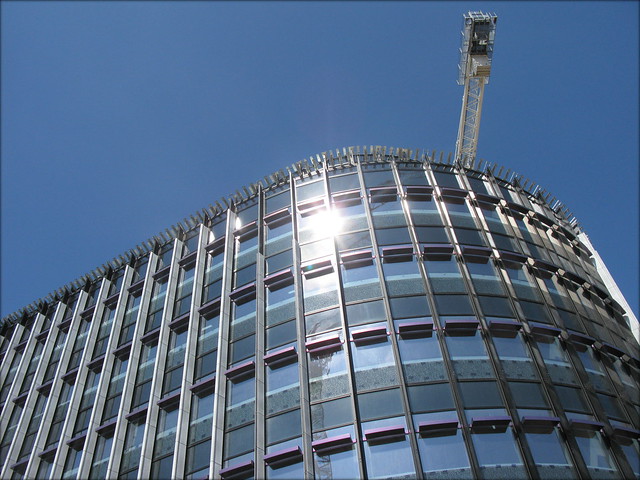We're All Going On A Summer Holiday?
As the school holidays get started and the sun comes out to shine, the TUC have claimed that 2 million workers are not getting their legal holiday entitlement. And...
Read Full Article
Bosses and facilities managers have been urged to allow flexible working, even on a temporary basis, as temperatures threaten to hit 37oC.
The Trades Union Congress - or TUC - has also added to their call by saying if flexible working can't be implemented, then ensuring workplaces are kept cool should be a priority.
Meanwhile, shops selling fans and companies that hire temporary air conditioning units are expecting a sellout in the week starting July 22.
The TUC says bosses can help their workers by:
Giving staff the chance to come in earlier or stay later to let them avoid the sweltering and unpleasant conditions of the rush hour commute. Bosses could also let staff work from home where possible.
Keeping their buildings cool by opening windows that can be opened, if air conditioning is not available, using fans, moving staff away from windows or sources of heat or hiring temporary air-cooling.
Temporarily encouraging staff to work in more casual clothing than normal – leaving the jackets and ties off and wearing lightweight clothes instead.
Allowing staff to take frequent breaks and providing a ready supply of cold drinks will all help keep workers cool.
Talking and listening to their staff where they have their own ideas about how best to cope with the excessive heat.
The dangers of hot workplaces
Hot workplaces are more than just an issue about comfort, the Congress has also warned.. High temperatures mean workers are at risk of:
Dizziness, fainting or even heat cramps.
Loss of concentration and increased tiredness.
An increase in the likelihood of accidents due to reduced concentration, slippery, sweaty palms or people ditching uncomfortable safety gear.
The law
There’s no law for minimum or maximum working temperatures. However, during working hours the temperature in all indoor workplaces must be ‘reasonable’. Guidance suggests a minimum of 16oC or 13oC if employees are doing physical work.
The TUC would like to see a change in the law to introduce a new maximum indoor temperature, set at 30oC – or 27oC for those doing strenuous jobs – with employers obliged to adopt cooling measures when the workplace temperature hits 24oC.
O’Grady
TUC General Secretary Frances O’Grady said: “While many of us love to see the sun, it’s no fun working in a baking office or a stifling factory. Bosses should do all they can to keep the temperature down.
“The easiest way for staff to keep cool inside is being able to work in more casual clothing. While shorts and vest tops may not be appropriate for all, nobody should be made to suffer in the heat for the sake of keeping up appearances.
“It's in bosses’ interests to provide a cool and comfortable work environment. Workers who are unable to dress down in lighter clothing or who work in offices without air-conditioning, fans or drinking water, are going to be tired, and lack inspiration and creativity.”
Picture: During the heatwave, bosses and FMs have been urged to allow flexible working.
Article written by Brian Shillibeer | Published 23 July 2019
As the school holidays get started and the sun comes out to shine, the TUC have claimed that 2 million workers are not getting their legal holiday entitlement. And...
Read Full ArticleAs temperatures in Europe reach record-breaking highs, unions are calling for a legal maximum temperature for work of 25°C to be set. However, the Health and...
Read Full ArticleAs a contribution to Mental Health Awareness Week, the PCS union has offered some practical to take to promote good mental health and are encouraging the contractors its...
Read Full ArticleAs deaths due to excess heat increase, the Building Engineering Services Association is calling for more concerted efforts to adapt the built environment’s...
Read Full ArticleThe Chartered Institution of Building Services Engineers has launched its latest weather data set to assist building services professionals in adapting their...
Read Full ArticleThe Met Office has confirmed that 2022 was the UK’s hottest year on record, with an average temperature of over 10°C recorded for the first time. The full UK...
Read Full ArticleAs people are urged to restrict their water use to protect supplies during the current heatwave, what would it practically mean for businesses if a drought is...
Read Full ArticleDespite wellbeing remaining an ongoing concern for workers, CIPD research suggests that mental health is beginning to slip down the business agenda amongst...
Read Full ArticleThe Health and Safety Executive’s new Stress Indicator Tool 2.0 allows employees to anonymously report work-related stress. Employers can therefore use this data...
Read Full Article77 per cent of employers have observed presenteeism in employees who are working from home in the last year, according to research by The Chartered...
Read Full Article